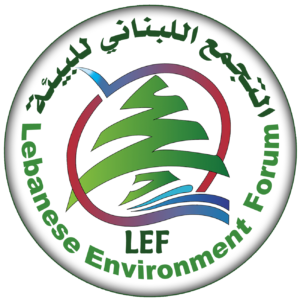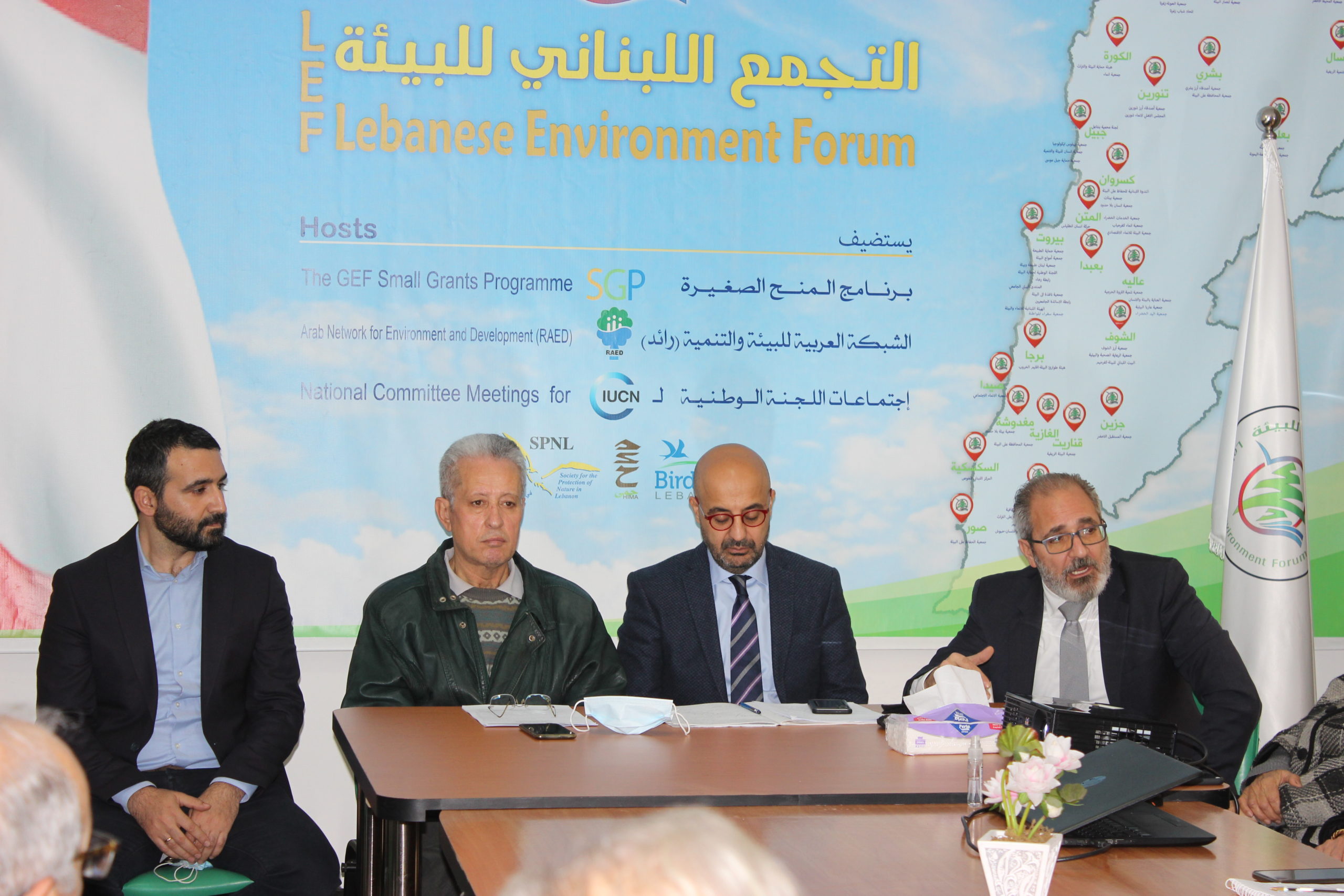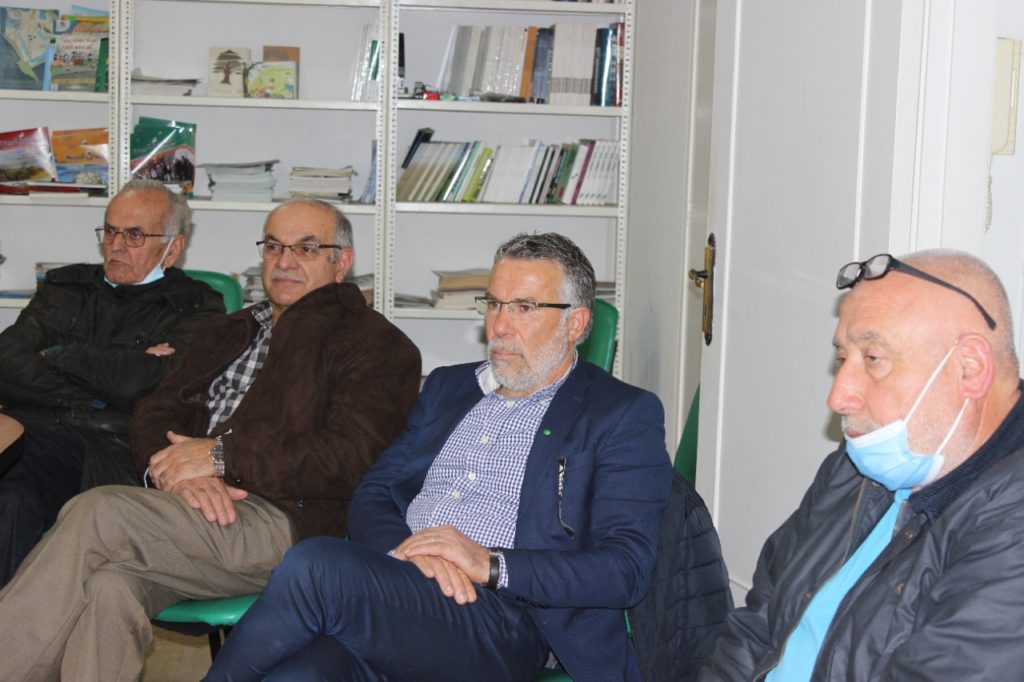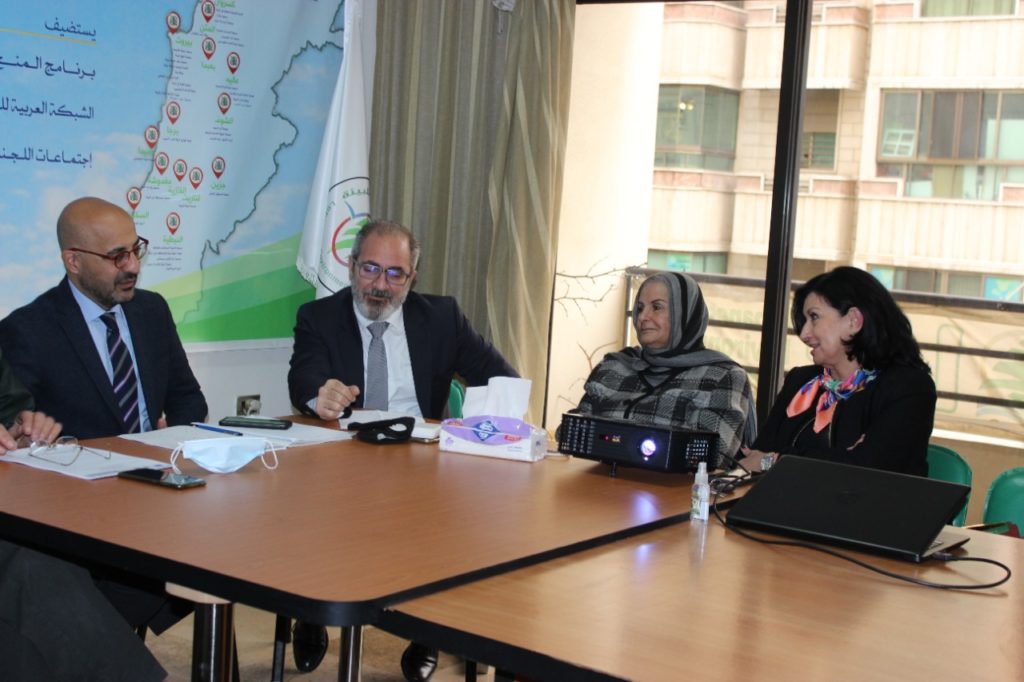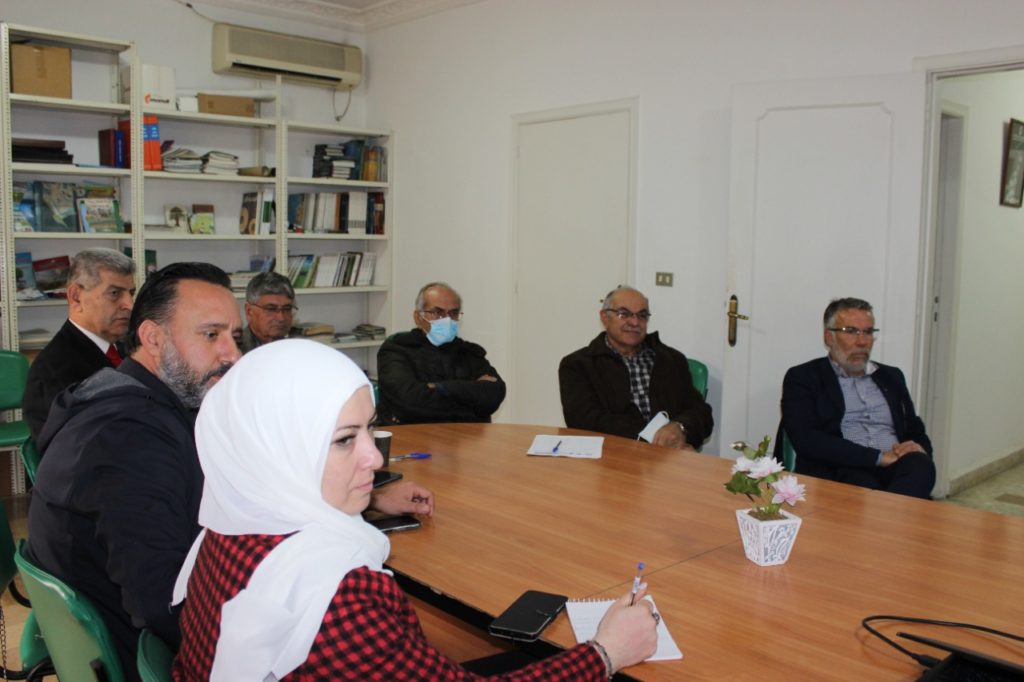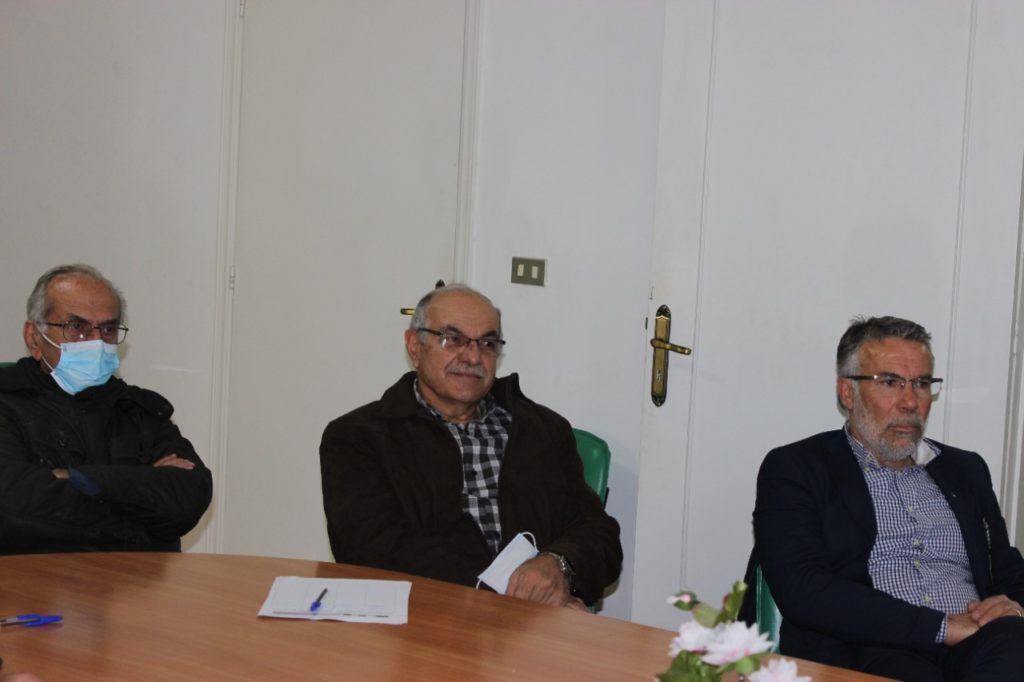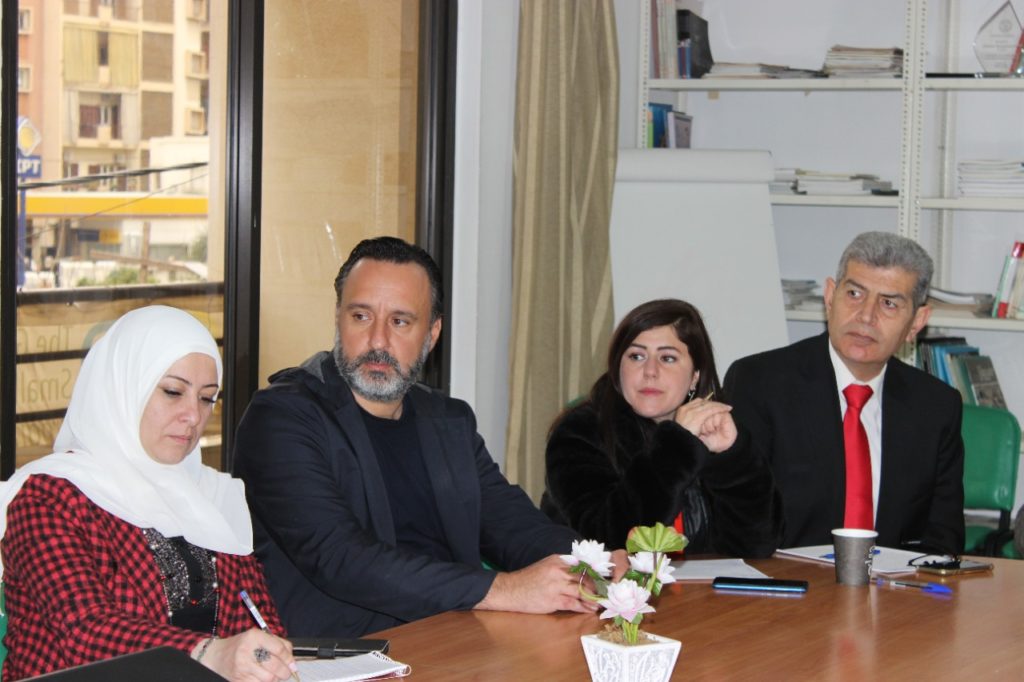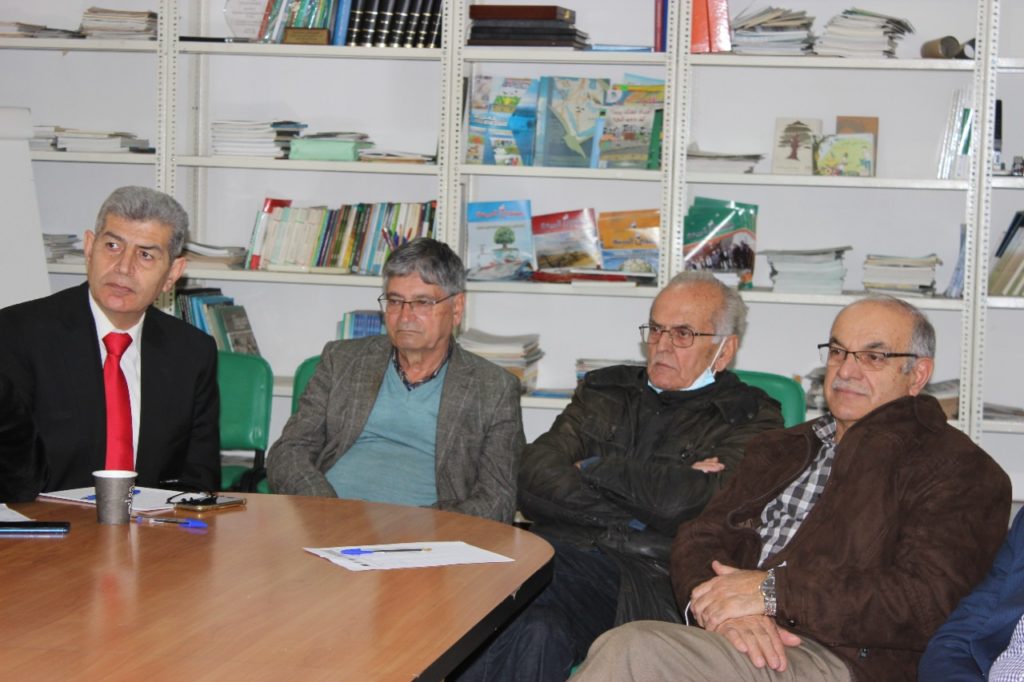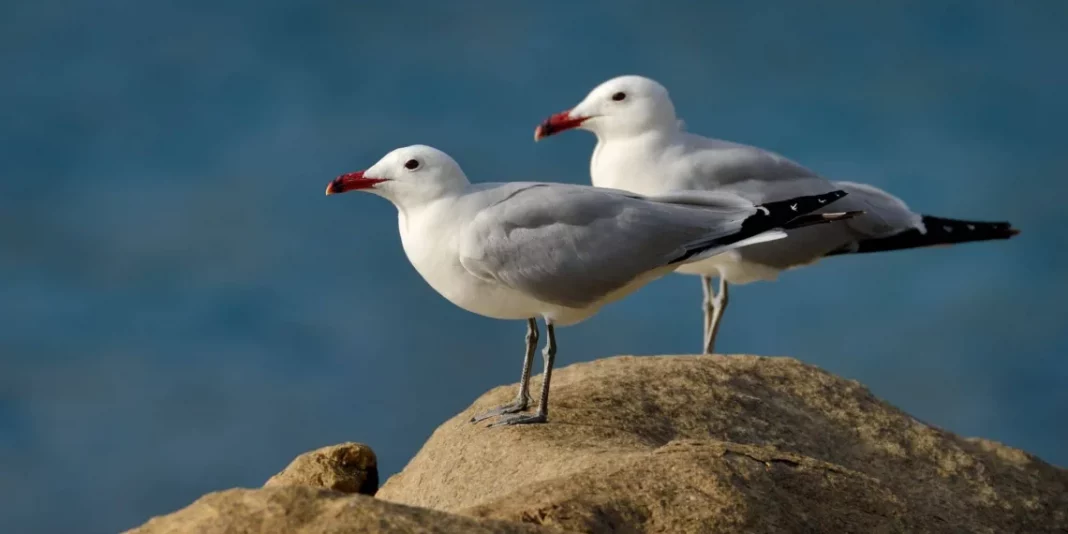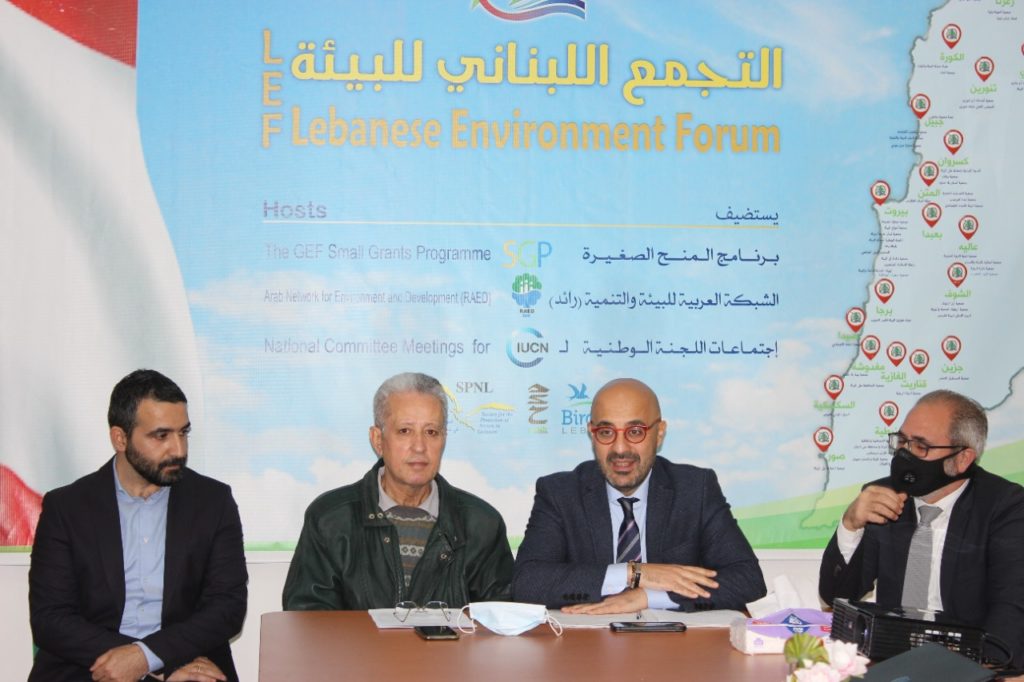
On the occasion of the National day for Nature Reserves in Lebanon, under the patronage and presence of H.E the Minister of Environment, Dr. Nasser Yassin, the Lebanese Environment Forum launched the project for Marine Protected Areas Network, funded by European Union in Lebanon and implemented jointly by LEF and the University of Balamand, with the cooperation of the Ministry of Environment.
An opening speech from LEF President, Eng. Malek Ghandour, who stated the role of the LEF since its establishment in 1991 in unifying environmental NGOs, coordinating their efforts, strengthening their capabilities to lead national environmental initiatives for the protection of environment and human health such as legislating and managing natural reserves, building their capacities and management plans including proposing the national day for reserves and reserves law. Through this project, LEF seeks to strengthen the capacities of Lebanese Non-State Actors to enhance the use of evidence and science in environmental policy-making and to form a network of marine reserves for the establishment of an effective MPAs network in Lebanon and enhancing the protection of Lebanon’s coastal and marine biodiversity and ecosystems through a national non-state actors advocacy campaign.
The University of Balamand represented by Dr. Manal Nader, Director of the Institute of Environment, talked about the social and economic crisis, especially the environmental one, which affected the society and worsened the deterioration of our environment. He focused specifically on the diverse and complex pressures that the Lebanese marine ecosystem is exposed to, such as climate change, invasive fish and dams that have deprived and will deprive our coastal waters of sand and organic matter, sea filling and urban expansion that led to the disappearance of entire habitats, in addition to all forms of pollution. These pressures have led to dangerous and harmful changes, habitat destruction and a massive reduction in marine biological resources. He also stressed on the commitment of the University of Balamand to its mission, which seeks to preserve the environment in Lebanon and address its urgent problems through scientific research and high-quality studies, especially marine ones, through its multidisciplinary Institute for Environmental Studies, through investment in scientific research, monitoring of natural systems and implementation of development projects such as this project that aims for establishing a network of marine reserves.
Mr. Jihad Jradi, representing the European Union in Lebanon said that “launching of this project comes within health, social, economic and financial crises that greatly affect the Lebanese people. Investment in Lebanon’s natural resources can contribute to paving the way for economic recovery, and create economic opportunities for the long-term in various sectors such as tourism and fishing, which is much needed in Lebanon. Preserving and protecting life on Earth is at the heart of the European Green Deal. It is a global challenge and we are committed to meet, not only for the benefit of the people, the environment and our planet, but also for its sustainable economic aspect.
He added, “In the past years, we witnessed many initiatives done by individuals, private sector or civil society organizations on ecotourism and sustainable agriculture. Creating advocacy networks for marine biodiversity protection based on scientific knowledge and research is very important.” He also stressed that “the European Union, as your partner, is committed to support Lebanon by benefiting on the use of expertise, resources and tools available to us to encourage social and economic development.”
The Minister of Environment, HE. Dr. Nasser Yassin considered the reserves as the beautiful face of Lebanon and the hope of coming out from the current crisis and he highlighted the importance of reserves and their role in improving the quality of life, air and natural wealth, and preserving our environmental heritage, which is rich in biodiversity.
He also referred to the role of nature reserves in revitalizing ecotourism and its sustainable economic returns, and called to remove all obstacles preventing the declaration and the management of additional important sites for protection, and the reserve should be in harmony with its biosphere. He also noted the successful decentralized administrative model of the reserves managed by local committees and the active role of associations in these reserves in order to develop the work of the reserves and its success. He considered that the best solution to the Bisri Dam crisis is its declaration as a multi-use nature reserve that preserves the natural and archaeological heritage, supports organic agriculture, and secures a permanent economic return. He also referred to the endeavor to transform crises into permanent and radical solutions that take into account the principles of sustainable development.
H.E concluded his speech by noting the initiative of the Lebanese Environment Forum to strengthen marine reserves through this project aiming at legislating and managing more marine reserves and their good management and the formation of a network for cooperation and coordination among them in solidarity, solidarity and integration between the Ministry of Environment and the Environment Gathering as a national umbrella for environmental associations. Non-governmental environmental action.
The project manager, Eng. Rebecca Baissari, presented the project objectives and outputs for the upcoming 3 years. This project aims for the establishment of an effective MPAs network in Lebanon for the protection of Lebanon’s coastal and marine biodiversity and ecosystems through a national non-state actors advocacy and awareness campaign supported by science-based evidence that contributes in building their capacities and contributing to a successful implementation of the ICZM and fisheries laws. As well as conducting meetings, seminars, an establishing communication platform for exchanging information and experiences, and disseminating scientific information and successful experiences, as well as strengthening and developing the administrative and executive capabilities of existing marine reserves, and seeking to issue new laws for important sites for protection and estuaries.
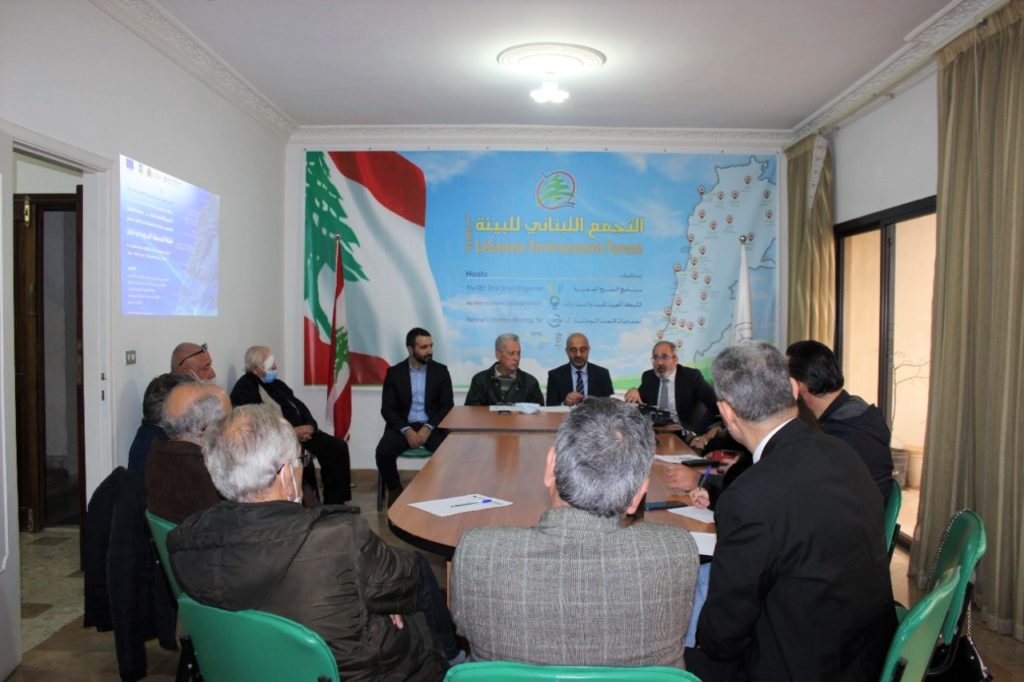
Disclaimer
The sole responsibility of this publication lies with the author. The European Union is not responsible for any use that may be made of the information contained therein.
